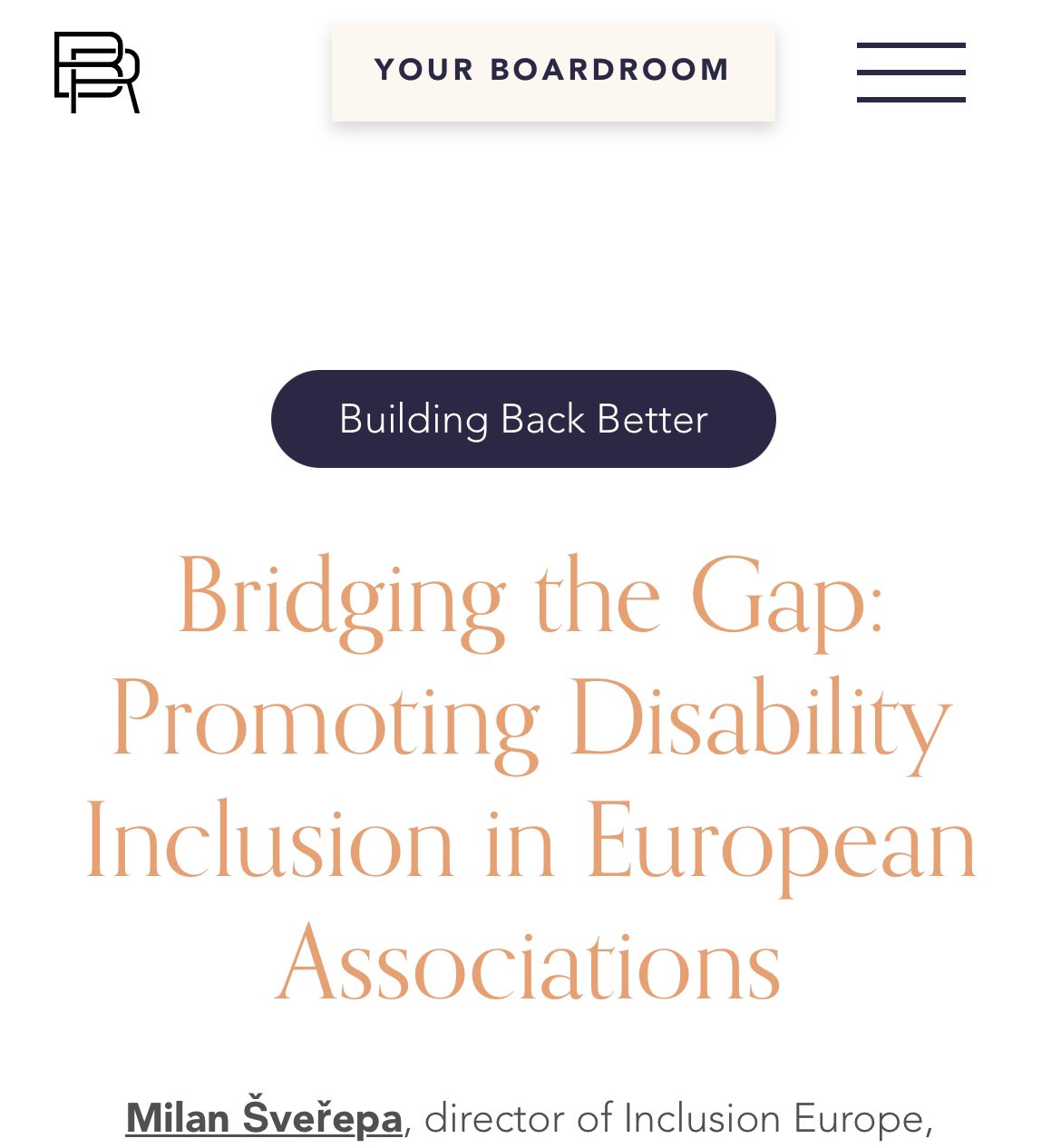-
Disability inclusion in European associations

There are over 100 million people with disabilities in Europe. That’s a population larger than the largest of EU member states. But how many people with disabilities do you know who sit on the boards of associations, who are in the decision-making roles in these organisations? The Boardroom magazine invited me to write about this,…
-
Protecting people with intellectual disabilities and their families during russian war on Ukraine
Key parts of Inclusion Europe work to support people with intellectual disabilities and families in Ukraine: Fundraising and financial support There are 14,000 families brought together by our member in Ukraine alone. Many of them without jobs, pensions because of the war. Inclusion Europe launched an emergency fundraiser to help them. By mid-April, we raised…
-
The plight of Europe’s disabled under coronavirus
What coronavirus and the lockdown highlights is the ongoing segregation and discrimination of people with intellectual disabilities, especially in access to healthcare. This problem is not likely to have a “lockdown exit strategy” any time soon. My article in EU Observer published 21 April 2020. (A copy here too.) Czech version: Koronakrize z pohledu lidí…